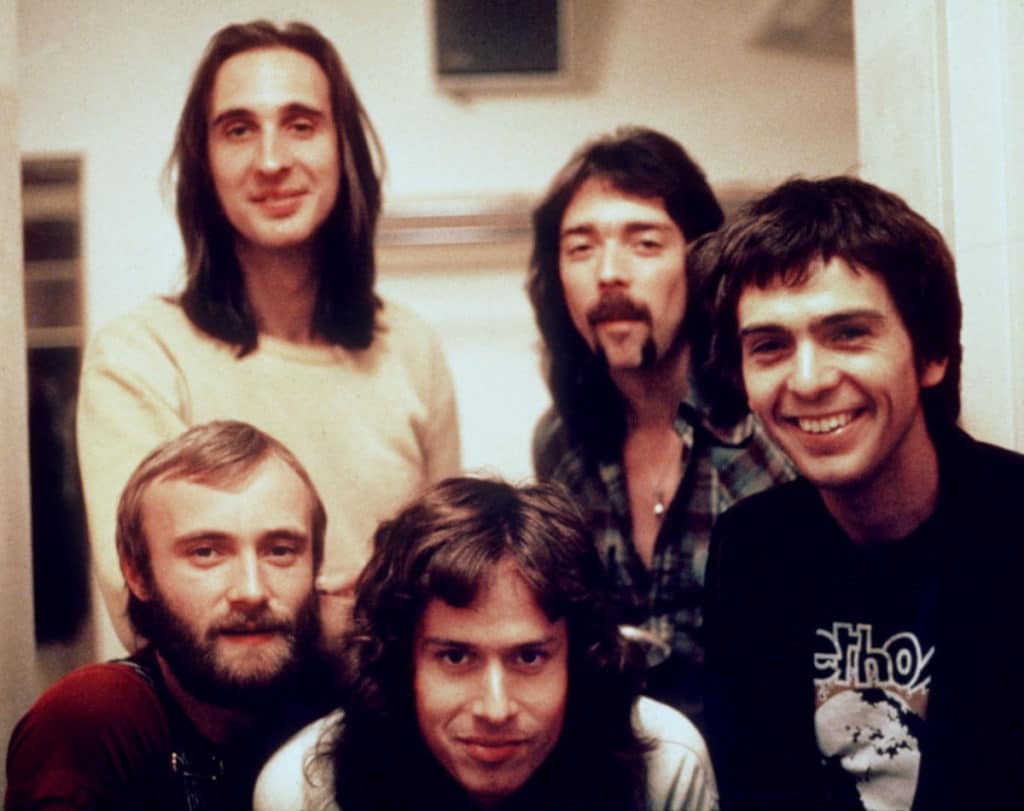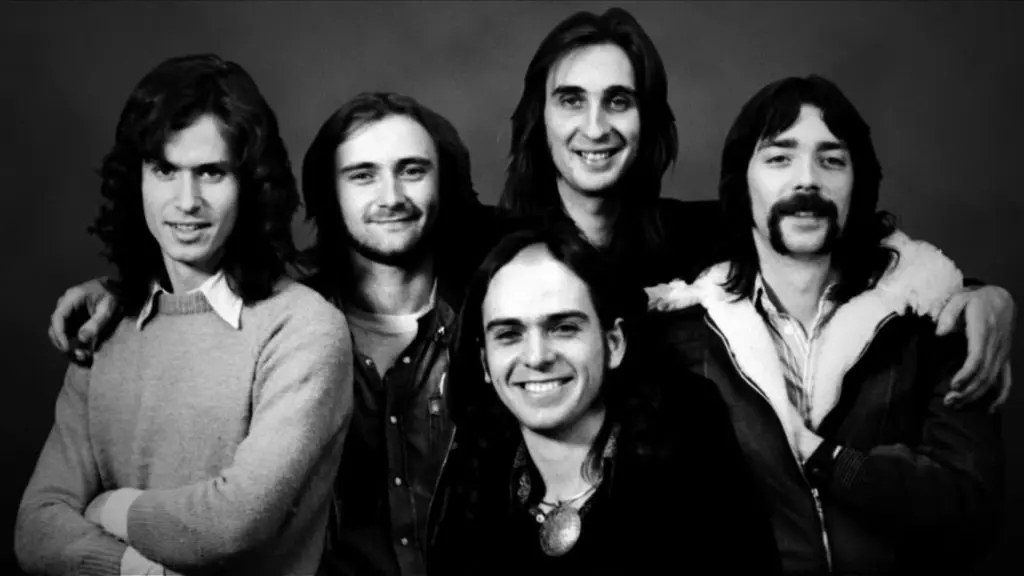The Genesis group showed the world what real avant-garde progressive rock is, smoothly reborn into something new with an extraordinary sound.
The best British group, according to numerous magazines, lists, opinions of music critics, created a new history of rock, namely art rock.
Early years. Creation and formation of Genesis
All participants studied at the same private school for boys, Charterhouse, where they met. Three of them (Peter Gabriel, Tony Banks, Christy Stewart) played in the school rock band Garden Wall, and Anthony Philipps and Mikey Reseford collaborated on various compositions.
In 1967, the guys reunited into a powerful group and recorded several demo versions of their own compositions and cover versions of hits from that period of time.
Two years later, the group began working with producer Jonathan King, a graduate of the same school where the guys studied, and employees of the Decca record company.
It was this person who suggested the group the name Genesis, translated from English as "The Book of Genesis".
Collaboration with Decca contributed to the release of the band's debut album From Genesis to Relevation. The record was not a commercial success, as it was nothing remarkable.
There were no new sounds in it, a unique zest, except for the keyboard parts of Tony Banks. Soon the label terminated the contract, and the Genesis group went to the record company Charisma Records.
Filled with the desire to create, creating an extraordinary, new sound, the band led the team to create the next Trespass record, thanks to which the musicians made themselves known throughout Britain.
The album was liked by fans of progressive rock, which became the starting point in the creative direction of the group. During the period of fruitful creativity, Anthony Philipps left the group due to his health condition.

Following him, drummer Chris Stewart left. Their departure shook the collective fortune of the remaining musicians, up to the decision to break up the group.
The arrival of drummer Phil Collins and guitarist Steve Hackett removed the critical situation, and the Genesis group continued their work.
The first successes of Genesis
Foxtrot's second album debuted immediately at number 12 in the UK chart. Unusual tracks-plays based on the stories of Arthur C. Clarke and other famous classics found a response in the hearts of fans of an unusual trend in rock music.
The variety of stage images of Peter Gabriel made ordinary rock concerts unique spectacles, comparable only to theatrical productions.
In 1973, the album Selling England by the Pound was released, which is the slogan of the Labor Party. This record received good reviews and was commercially successful.
The compositions consisted of experimental sounds - Hackett studied new ways to extract sounds from the guitar, the rest of the musicians created their own recognizable techniques.

The following year, Genesis released the song The Lamb Lies Down on Broadway, reminiscent of a musical performance. Each composition had its own history, but at the same time they were closely related.
The band went on tour in support of the album, where they first used a new laser technique to create a light show.
After the world tour, tensions within the band began. In 1975, Peter Gabriel announced his departure, which shocked not only other musicians, but also numerous "fans".
He justified his departure by his marriage, the birth of his first child and the loss of individuality in the group after gaining fame and success.
The further path of the group

Phil Collins became the vocalist of Genesis. The released record A Trick of the Tail is warmly received by critics, despite the new sound of the vocals. Thanks to the album, the group was very popular, it was sold in significant numbers.
The departure of Gabriel, who took with him the mysticism and brilliance of the performances, did not stop the band's live performances.
Collins created no less theatrical performances, in some moments sometimes superior to the original ones.
Another blow is the departure of Hackett due to accumulated disagreements. The guitarist wrote many instrumental compositions "on the table", which did not fit into the theme of the released albums.
After all, each record had its own content. For example, the album Wind and Wuthering is entirely based on the novel Wuthering Heights by Emily Brontë.
In 1978, the lyric disc …And Then There Were Three was released, which put an end to the creation of unusual compositions.
Two years later, a new Duke album appeared on the music market, created under the authorship of Collins. This is the band's first compilation album to top the US and UK music charts.
Later, the even more successful Genesis album was released, which has a quadruple platinum status. All singles and compositions from the album had no underground, originality and unusualness.
Most of these were standard hits of the time. In 1991, Phil Collins left the band and devoted himself entirely to his own solo career.
Group today
Currently, the group sometimes plays small concerts for "fans". Each of the participants is engaged in creative activities - writes books, music, creates paintings.



